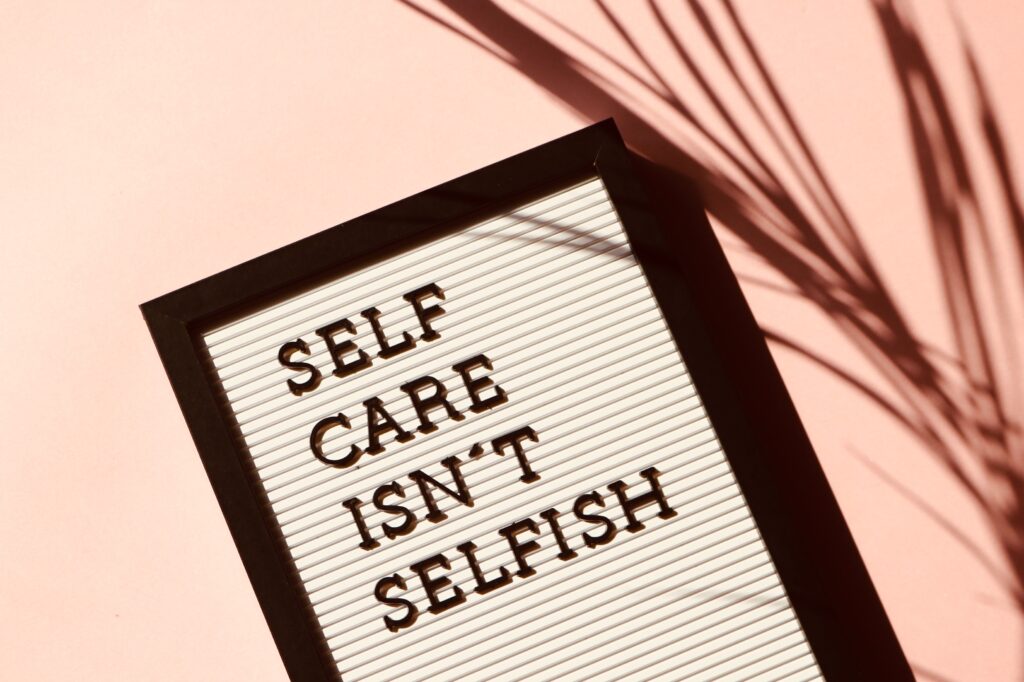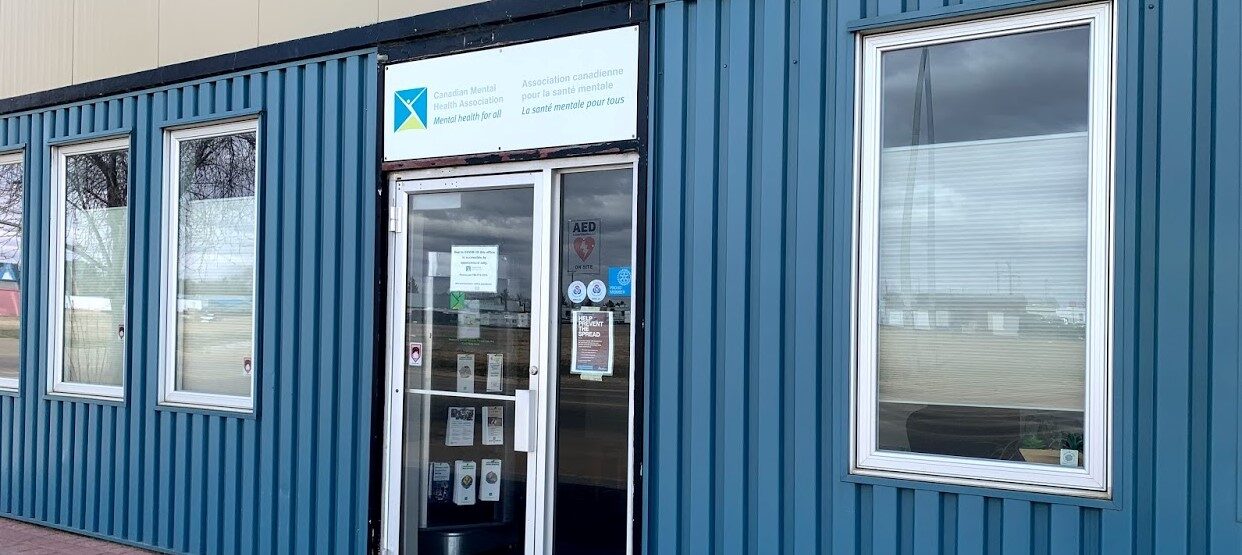In recognition of Canadian Mental Health Week from May 3rd to 9th, Camrose Energy is pleased to announce our annual financial contribution to the Canadian Mental Health Association (CMHA) Alberta East Central, as part our ongoing Community Partner program.
As a Camrose Energy Community Partner since 2013, we are pleased to continue share a portion of our annual 10% profits with CMHA, as directed by our customers. Even though new customers cannot select the CMHA as a funding partner, Camrose Energy is proud to continue supporting the great work done by the CMHA.
Colleen Swanson, Executive Director for Canadian Mental Health Alberta East Central, said it is important to have donors like us because it adds to the base programming made possible through government and grant funding.
Thank you Camrose Energy Corporation, for being a consistent, generous donor; we really appreciate the support. The money helps make programs more flexible for individuals who don’t meet the criteria for other programming.
Colleen Swanson
A Natural Choice for Support

In 2011, Valerie Wolski, an individual supports worker for CMHA and one of my university friends, was killed during a visit with a CMHA client.
Val was doing what she loved. She was an amazing support worker who helped many people deal with their mental health challenges. The fatality inquiry revealed the client should not have been in the CMHA system, as not enough was known about his history to ensure my friend had a safe working environment.
When we were setting up Camrose Energy, we felt compelled to connect with CMHA in hopes that our support can in some way honour Val and the organization she cared so much about.
Independent Living Support Program
This year’s funding from Camrose Energy will be directed to CMHA’s Independent Living Support program, a voluntary program for individuals over the age of 16 with severe and persistent mental illness who also have a developmental disability or a brain injury and wish to live more independently.
Colleen said that without this program, some clients would find it difficult to live independently.
The program sees 153 unique visits a month,” she said. “We help with grocery shopping, budgeting, meal planning, access to funding like AISH and CPP Disability. We help them find apartments and help develop the day-to-day skills needed to live independently in the community.”
Services may also include: accommodations, budgeting, meal planning, daily routines, household maintenance, recreation and socialization, skills training, and community integration.
By identifying their own needs and interests, a plan is developed to address these areas of support; they also learn to advocate for themselves to remove barriers.
Services are coordinated with other agencies to provide support and assistance to promote social, physical, and emotional well-being, while fostering self-determination and independence.
Coming soon: CMHA Recovery College
Colleen is also excited about another new endeavour for CMHA in Camrose: the development of a CMHA Recovery College. Modeled after the same program in Red Deer, Recovery College uses an educational-based approach to help people recognize and develop their own resourcefulness and awareness to support themselves or their loved one’s recovery journey.
Officials met on April 27th to discuss program development and implementation in the communities they serve in their region – including Lloydminster, Wainwright, Tofield, Daysland, Killam, Marwayne – and all the places along the way. Colleen expected to receive a Letter of Understanding was expected the following day.

All Recovery College courses are developed and delivered in partnership with peer supporters who are experts by experience: they have their own story of a mental health or substance concern, or are supporting a loved one.
While the finite details haven’t been finalized, Colleen expects to be delivering programming opportunities like ABCs of Emotional Coping, Caregiver Connections, Eight Strategies to help manage Stress and Emotions, Emotions can be Contagious, Practicing Mindfulness, Self-Care for Caregivers, and Wellness Tools for the New Normal.
Recovery College courses are interactive and create positive learning experiences, emphasizing connection, hope and belonging; the courses are designed to inspire optimism, encourage students to consider future opportunities, and move people towards personal empowerment.
Watch for more information to come soon as the Recovery College details are finalized.
What is good mental health?

Many people believe that good mental health is to be happy all the time – but that’s so untrue! A mentally healthy life includes the full range of human emotions – even the uncomfortable ones like sadness, fear and anger – and knowing how to deal with the spectrum of emotions.
It also means being able to understand our emotions; recognizing, labeling and accepting that our feelings are all part of protecting and promoting good mental health.
According to the Canadian Mental Health Association, one in five Canadians experiences mental illness or a mental health issue; but five out of five people have mental health and it’s vital to protect and nurture positive mental health. Everyone deserves to feel well, and understanding our emotions is a part of feeling well.
Over the past year, under the shadow of Covid-19, people are experiencing unprecedented stresses and feelings of pandemic-related anxiety; 40% of Canadians say their mental health has deteriorated since the onset of the pandemic.
Colleen said their office has been much busier since Covid-19; although the home visits have stopped, the staff make socially distanced outside visitations, or virtual visits to maintain contact with the clients so they don’t feel as isolated.
What can you do during Canadian Mental Health Week?
This year marks the 70th anniversary of Canadian Mental Health Week, with its core objective to promote mental health because mental health is something we can promote and protect, not just something we can lose.
I just love the logo and theme this year ‘Name it – don’t numb it’. Especially during Covid this year, people should acknowledge their emotions and learn how to deal with them, stay in tune with their mental health. During Mental Health Week, do five things that will get you out of your normal routine – get back to nature, go out side for fresh air and socialize safely are just a few suggestions.
Colleen Swanson

This CMHA Mental Health Week, we focus on how naming, expressing, and dealing with our emotions — the ones we like and the ones we don’t — is important for our mental health.
Heavy feelings lighten when you put them into words. When we voice our emotions, the pain gives way. So, let’s understand and name how we feel. Angry? Glad? Frustrated? Sad? It’s all good.
This Mental Health Week, don’t be uncomfortably numb. #GetReal about how you feel. And name it, don’t numb it. For great articles on positive mental health, please visit mentalhealthweek.ca
About CMHA Alberta East Central
The CMHA office in Camrose offers a comprehensive range of mental health services to support the local community including Education and Training, Housing, and Peer and Self-help Initiatives.
The Camrose office, located at the corner of 48th Street and 51st Ave, oversees the services across east central Alberta, from Andrew to Donalda in the west, to the Saskatchewan border, and roughly from Provost to Marwayne.
Prior to Covid-19 restrictions, the drop-in centre at the Camrose office saw as many as 14 people a day come in for socialization opportunities. Donations to the centre allow staff to work ‘outreach’ with walk-ins who just need help. In turn, that assistance could prevent someone from going into a crisis which will develop mental health issues in the long run. Colleen said they can provide the drop-in services because donated funds aren’t allocated to the other programming.
CMHA services may be accessed by self-referral, or through the recommendation by family, friends, therapist or doctor.




